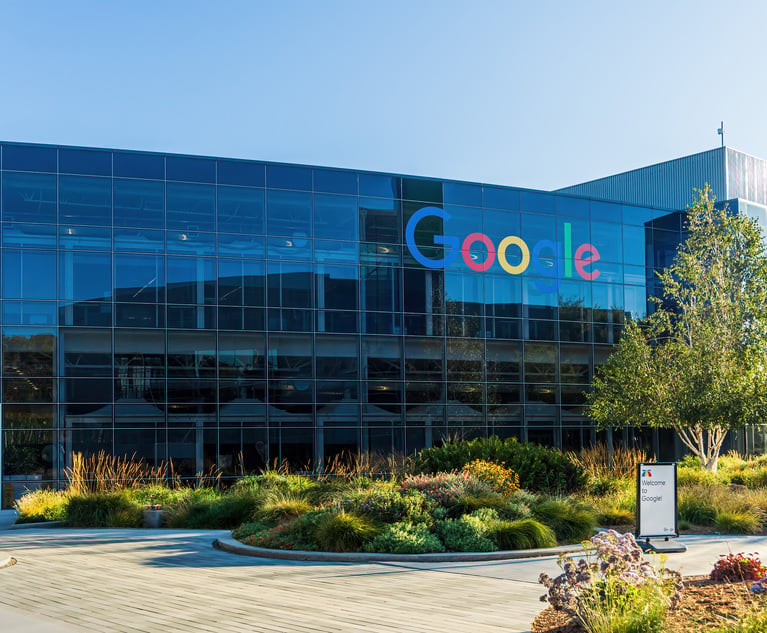Facebook, Google Forced to Share Revenue With Australian Media Companies
The move follows a report last year that found the companies wield too much influence over Australia's news and advertising markets and deprive consumers of control over their personal information.
April 22, 2020 at 11:03 AM
4 minute read
The original version of this story was published on Law.com International
Facebook and Google will be forced to pay media companies in Australia for news content they use as the COVID-19 crisis causes a collapse in advertising revenue.
Federal Treasurer Josh Frydenberg has asked the antitrust regulator to develop a mandatory code of conduct to force the digital media giants to share advertising revenue and correct what the regulator says is an imbalance in bargaining power.
"Facebook and Google have each become unavoidable trading partners for Australian news media businesses in reaching audiences online," Frydenberg said in a statement.
The move follows a report last year by the Australian Consumer and Competition Commission, which found the companies wield too much influence over Australia's news and advertising markets, stifling competition and depriving consumers of control over their personal information.
Responding to last December's report, the government had told the digital media giants to negotiate a voluntary code of conduct with the ACCC by November of this year.
But this week the government said it would make the code mandatory and brought forward its completion to July.
"The Australian media sector was already under significant pressure; that has now been exacerbated by a sharp decline in advertising revenue driven by coronavirus," Frydenberg said.
"At the same time, while discussions between the parties have been taking place, progress on a voluntary code has been limited, according to recent advice provided by the ACCC following a request by the government for an update.
"The ACCC considers it is unlikely that any voluntary agreement would be reached with respect to the key issue of payment for content."
The mandatory code will cover the sharing of data, the ranking and display of news content, and the monetization and sharing of revenue generated from news. It will also establish an enforcement, penalty and binding dispute resolution regime.
"We're disappointed by the government's announcement, especially as we've worked hard to meet their agreed deadline," Will Easton, managing director of Facebook Australia and New Zealand, said in a statement.
The company pointed to the A$5 million (US$3.15 million) it committed a year ago to spend on journalist training and project funding.
Google also said it had been consulting with news organizations. "We have sought to work constructively with industry, the ACCC and government to develop a Code of Conduct, and we will continue to do so in the revised process set out by the government today," the company said in a statement.
However, news organizations welcomed the move.
"For two decades, Google and Facebook have built trillion-dollar businesses by using other people's content and refusing to pay for it," Newscorp Australia chief executive Michael Miller said on LinkedIn. "Their massive failure to recognize and remunerate creators and copyright owners has put at risk the original reporting that keeps communities informed."
In its December report, the ACCC also found that of every $100 spent by advertisers on online advertising (excluding classified advertising), $47 went to Google and $24 went to Facebook.
Along with recommending the digital giants share their advertising revenue, the ACCC also recommended the platforms be required to gain "specific, unambiguous and informed" consent from individuals for their data being collected, to notify consumers when their information is being collected, and to enable the erasure of personal information.
READ MORE:
Facebook and Google Face Crackdown in Australia as Regulators Propose Limiting Their Market Power
Australia Could Launch Cases Against Google and Facebook, Says Former Regulator
This content has been archived. It is available through our partners, LexisNexis® and Bloomberg Law.
To view this content, please continue to their sites.
Not a Lexis Subscriber?
Subscribe Now
Not a Bloomberg Law Subscriber?
Subscribe Now
NOT FOR REPRINT
© 2025 ALM Global, LLC, All Rights Reserved. Request academic re-use from www.copyright.com. All other uses, submit a request to [email protected]. For more information visit Asset & Logo Licensing.
You Might Like
View All
How We Won: BraunHagey’s $56M Trademark Win Over Molson Coors Upheld by 9th Circuit
8 minute read
'Water Cooler Discussions': US Judge Questions DOJ Request in Google Search Case
3 minute read
Judge to Hear Arguments on Whether Google's Advertising Tech Constitutes a Monopoly
3 minute readTrending Stories
- 1Supreme Court Takes Up Challenge to ACA Task Force
- 2'Tragedy of Unspeakable Proportions:' Could Edison, DWP, Face Lawsuits Over LA Wildfires?
- 3Meta Pulls Plug on DEI Programs
- 4On the Move and After Hours: Meyner and Landis; Cooper Levenson; Ogletree Deakins; Saiber
- 5State Budget Proposal Includes More Money for Courts—for Now
Who Got The Work
Michael G. Bongiorno, Andrew Scott Dulberg and Elizabeth E. Driscoll from Wilmer Cutler Pickering Hale and Dorr have stepped in to represent Symbotic Inc., an A.I.-enabled technology platform that focuses on increasing supply chain efficiency, and other defendants in a pending shareholder derivative lawsuit. The case, filed Oct. 2 in Massachusetts District Court by the Brown Law Firm on behalf of Stephen Austen, accuses certain officers and directors of misleading investors in regard to Symbotic's potential for margin growth by failing to disclose that the company was not equipped to timely deploy its systems or manage expenses through project delays. The case, assigned to U.S. District Judge Nathaniel M. Gorton, is 1:24-cv-12522, Austen v. Cohen et al.
Who Got The Work
Edmund Polubinski and Marie Killmond of Davis Polk & Wardwell have entered appearances for data platform software development company MongoDB and other defendants in a pending shareholder derivative lawsuit. The action, filed Oct. 7 in New York Southern District Court by the Brown Law Firm, accuses the company's directors and/or officers of falsely expressing confidence in the company’s restructuring of its sales incentive plan and downplaying the severity of decreases in its upfront commitments. The case is 1:24-cv-07594, Roy v. Ittycheria et al.
Who Got The Work
Amy O. Bruchs and Kurt F. Ellison of Michael Best & Friedrich have entered appearances for Epic Systems Corp. in a pending employment discrimination lawsuit. The suit was filed Sept. 7 in Wisconsin Western District Court by Levine Eisberner LLC and Siri & Glimstad on behalf of a project manager who claims that he was wrongfully terminated after applying for a religious exemption to the defendant's COVID-19 vaccine mandate. The case, assigned to U.S. Magistrate Judge Anita Marie Boor, is 3:24-cv-00630, Secker, Nathan v. Epic Systems Corporation.
Who Got The Work
David X. Sullivan, Thomas J. Finn and Gregory A. Hall from McCarter & English have entered appearances for Sunrun Installation Services in a pending civil rights lawsuit. The complaint was filed Sept. 4 in Connecticut District Court by attorney Robert M. Berke on behalf of former employee George Edward Steins, who was arrested and charged with employing an unregistered home improvement salesperson. The complaint alleges that had Sunrun informed the Connecticut Department of Consumer Protection that the plaintiff's employment had ended in 2017 and that he no longer held Sunrun's home improvement contractor license, he would not have been hit with charges, which were dismissed in May 2024. The case, assigned to U.S. District Judge Jeffrey A. Meyer, is 3:24-cv-01423, Steins v. Sunrun, Inc. et al.
Who Got The Work
Greenberg Traurig shareholder Joshua L. Raskin has entered an appearance for boohoo.com UK Ltd. in a pending patent infringement lawsuit. The suit, filed Sept. 3 in Texas Eastern District Court by Rozier Hardt McDonough on behalf of Alto Dynamics, asserts five patents related to an online shopping platform. The case, assigned to U.S. District Judge Rodney Gilstrap, is 2:24-cv-00719, Alto Dynamics, LLC v. boohoo.com UK Limited.
Featured Firms
Law Offices of Gary Martin Hays & Associates, P.C.
(470) 294-1674
Law Offices of Mark E. Salomone
(857) 444-6468
Smith & Hassler
(713) 739-1250








